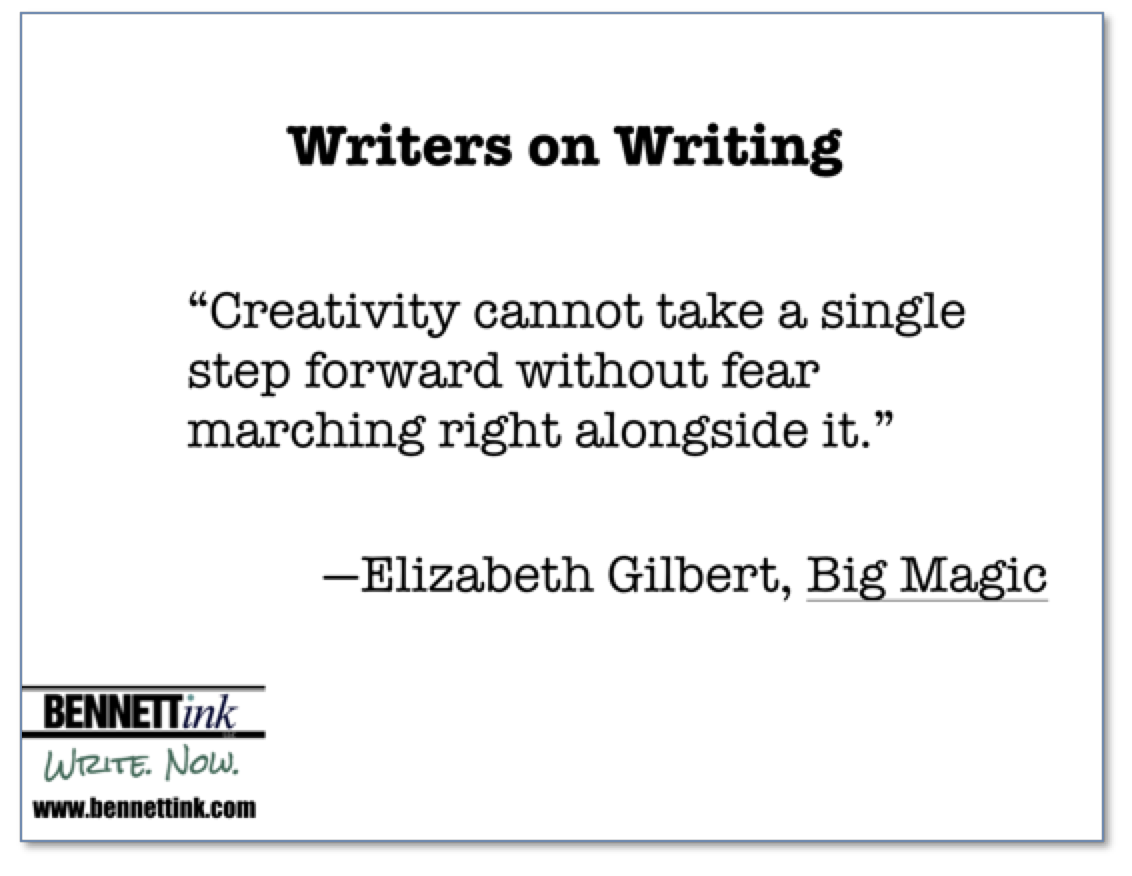“How should I use research?” — Frequent Questions
Q: How should I use research when I present? Don’t people need to see it?
A: That depends. Do you want to get them in action or put them to sleep?
I’m a hard-core researcher myself. I once wrote a 40-minute presentation with over 500 footnotes. The footnotes weren’t on the slides, though; they were in the script. And the client didn’t read them—they were just there in case anyone asked. This particular client was famous for talking off the top of his head and I wanted the audience (his clients) to know he’d done his homework.
Okay, I’d done his homework. Which may be verboten in academia, but in the business world it’s, well, business as usual.
 I use many quotations when I’m teaching. It’s in my DNA; I grew up reading primary sources. And I always cite the author and work it comes from on the slide, as you can see. When I’m giving a speech or guesting on a podcast, I’ll also prepare a resource sheet for my audience with a list of books I mentioned and URLs of any web-based resources.
I use many quotations when I’m teaching. It’s in my DNA; I grew up reading primary sources. And I always cite the author and work it comes from on the slide, as you can see. When I’m giving a speech or guesting on a podcast, I’ll also prepare a resource sheet for my audience with a list of books I mentioned and URLs of any web-based resources.
I don’t like having my clients speak with slides. So if I wanted to use that quotation, I’d have my client say something like:
As Elizabeth Gilbert wrote in her book Big Magic—quote—”Creativity cannot take a single step forward without fear marching right alongside it.” Gilbert is talking about creativity, but I think it’s true in any endeavor.
The second mention of the author’s name serves as an “unquote.” It also reminds the audience again what her name is—a little speechwriters’ trick.
Can I ever use research?
Of course you need to use research. And source it properly, or you cross the line from “using research” to “plagiarizing.”
While dissertations bristling with footnotes may bring all the academics to the yard—or the quad, as the case may be—in the “real world,” you need to integrate your research seamlessly into your presentation or your writing. You need to—and say it with me, regular readers; it seems to be the theme this week—
Tell A Story.
I’ve been there. I once labored for months over a piece of writing—for myself, not for a client. I researched the hell out of this thing, drawing material from places obvious and obscure. I committed to send it to a friend and set a deadline for myself, so I would actually finish it. The day after I emailed my precious piece to my friend, I re-read it. And saw…
It was garbage. It read like I’d written it for an academic journal. Nothing wrong with that, but I had intended it to be entertaining. Definitely missed the mark there.
I sent my friend another email:
“I just re-read this thing and it’s terrible. And that’s not false modesty. Don’t waste your time reading it.”
A few weeks later, I got a reply. My friend, looking for the silver lining:
“You sure did a lot of research.”
So—is that what you want to hear after someone hears you speak? Is that what you want the audience to remember?
Or do you want them to remember your ideas, the story you tell?
It’s your choice.